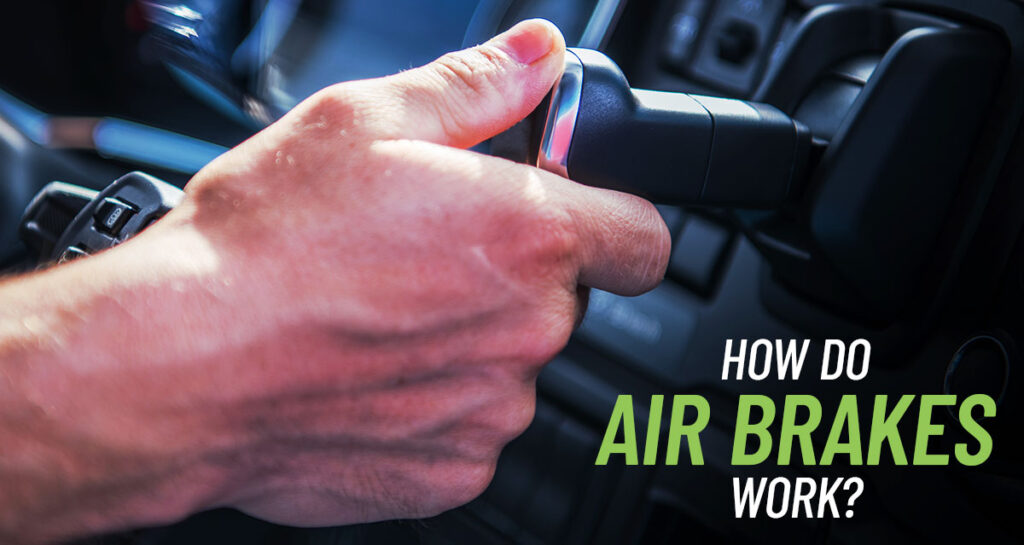Tractor trailers, buses, and other large diesel-powered vehicles often transport big, heavy loads – so it’s important for everyone’s safety that these vehicles can stop when they need to. That’s where air brakes come in. Air brakes have huge brake drums to effectively stop a diesel rig hauling thousands of pounds, and they run on air, instead of hydraulic fluid, so they are more reliable.
How Air Brakes Stop a Big Rig
Here’s a quick rundown of how air brakes work:
- Air is pressurized by an engine-mounted air compressor which is pumped into air storage tanks where it is stored until needed.
- When the driver hits the brake pedal, the air braking system is activated, and the air from the storage tanks is sent to the brake valves.
- The air from the valves goes into the brake chambers which moves the pushrod to push on the slack adjusters.
- The adjusters transfer the downward pushrod force into cam rotational force.
- When the cam rotates, the rollers rise and press the brake shoes against the drum.
- As the shoes press against the drum, this slows or stops the wheel.
- Woo-hoo! Air brakes have stopped your massive vehicle!
What are the Key Components to an Air Brake System?
The main components of an air brake system include the air reservoirs/tanks, the air compressor, the brake chambers, the foot valves, and the brake shoes and drums.
Why do Air Brakes Make Noise?
Air brakes include bypass safety valves to ensure that the air pressure remains at the correct level. If the air compressor builds up too much pressurized air, the valves open, and the air rushes out with that familiar loud hissing sound.
Check out J-Tech!
Love learning all about vehicles and how to keep them running their best?
Whether you are interested in becoming a Diesel Technician, a Commercial Truck Driver, or an Automotive Technician, J-Tech Institute can provide you with the training you need to jumpstart your career. Contact us today to learn more, or to schedule your visit to our 168,000 square foot facility in Jacksonville, FL.
